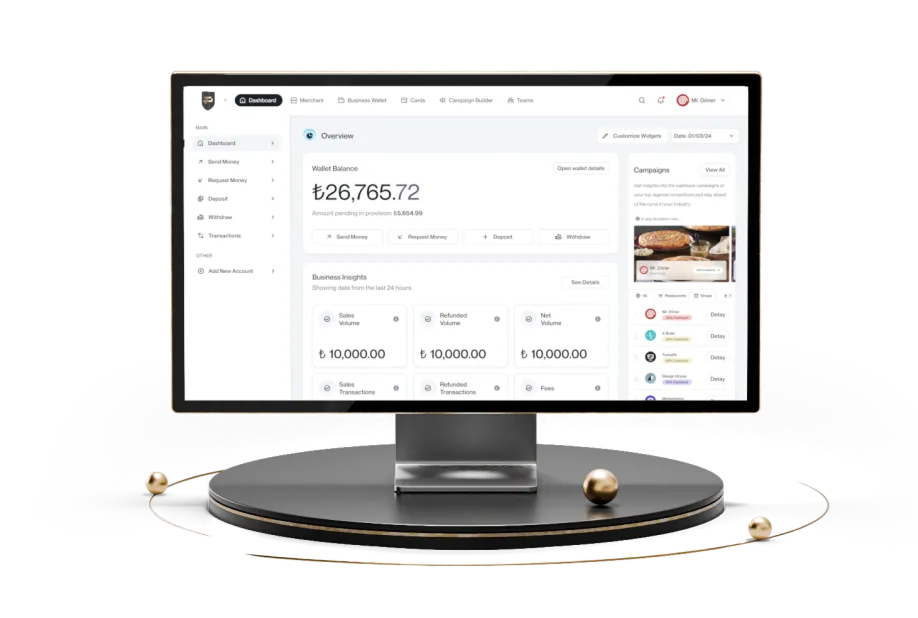What Is a Stock Exchange? What Are Its Types?
In this article, we delve deep into the concept of stock exchanges, their types, their importance for investors, and emerging trends shaping their future.
A stock exchange is an organized marketplace where securities (such as stocks and bonds), commodities (like gold and oil), and other financial instruments are bought and sold. Stock exchanges provide a platform where prices are determined based on supply and demand. Through strict regulations and monitoring mechanisms, they ensure transparency and fairness, fostering trust between buyers and sellers. By connecting investors and institutions seeking capital, stock exchanges contribute significantly to economic growth. Prices determined within the exchange reflect investor expectations, financial data, and market trends. As a fundamental pillar of free-market economies, where prices are shaped by natural supply and demand with minimal government intervention, stock exchanges play a pivotal role in price determination, resource allocation, and economic stability.
How Does the Stock Market Relate to the Economy?
Stock exchanges are vital indicators of a nation’s economic health and growth potential. Rising stock market performance often signals economic optimism, influencing the outlook of individuals and businesses alike. By directing capital to the most productive companies, stock exchanges optimize resource allocation and promote international capital flow, integrating economies with global markets. Additionally, companies leverage the stock market to raise funds from investors, fueling growth and innovation, and directly supporting economic development.
What Are the Types of Stock Exchanges?
Different types of stock exchanges cater to diverse investment needs, enabling risk management and portfolio diversification. These exchanges are classified based on the financial instruments traded and the market mechanisms involved. From stocks and commodities to foreign currencies and cryptocurrencies, each market offers unique risks and opportunities for investors. The major types of stock exchanges include:
- Equity Markets (Stock Exchanges)
- Commodity Exchanges
- Foreign Exchange Markets (Forex)
- Cryptocurrency Exchanges
Equity Markets (Stock Exchanges)
Stock exchanges are platforms where companies issue shares to raise capital, and investors trade these shares. Examples include the New York Stock Exchange (NYSE), Nasdaq, and Borsa Istanbul (BIST). These exchanges enable companies to secure funding for expansion while providing investors with opportunities for long-term growth. Investors can buy and sell shares for potential capital gains and liquidity, with company valuations reflecting future expectations.
Commodity Exchanges
Commodity exchanges facilitate the trading of physical goods such as gold, oil, and agricultural products. Examples include the London Metal Exchange (LME) and the Chicago Mercantile Exchange (CME). These markets help stabilize commodity prices and offer producers protection against price volatility. Investors use these exchanges to diversify portfolios with physical assets. Commodity prices are influenced by supply-demand dynamics, global events, and geopolitical risks.
Foreign Exchange Markets (Forex)
Forex markets, where currencies are traded, are among the largest and most liquid markets globally. Pairs like EUR/USD and GBP/JPY dominate Forex trading. These markets facilitate global trade and investment while allowing investors to profit from currency fluctuations. Ideal for short-term strategies, Forex operates 24/5, adapting to different time zones. Currency values are heavily influenced by global economic developments and central bank policies.
Cryptocurrency Exchanges
Cryptocurrency exchanges allow the trading of digital assets like Bitcoin and Ethereum. Examples include Binance, Coinbase, and Kraken. These platforms cater to investors with a high-risk tolerance and interest in blockchain technology. Unlike traditional exchanges, crypto markets operate 24/7 with minimal fees. Cryptocurrency prices are highly volatile, influenced by market demand and regulatory news.

What Is Borsa Istanbul (BIST)?
Borsa Istanbul (BIST) is Turkey’s organized capital market, facilitating the trading of financial instruments like stocks, bonds, commodities, and derivatives. Serving both local and international investors, Borsa Istanbul plays a strategic role in Turkey’s economic growth. With a rich history and modern infrastructure, it represents Turkey’s economic vision and is recognized on global platforms.
The History of Borsa Istanbul
Borsa Istanbul traces its origins to the Ottoman era. Organized financial markets first emerged in the 19th century under the leadership of Galata bankers. The Ottoman Empire officially established its first stock exchange, the "Dersaadet Tahvilat Borsası," in 1873. After the establishment of the Turkish Republic, the exchange was reorganized and modernized. In 1985, with the country’s transition to a market economy, the Istanbul Stock Exchange (IMKB) was established, marking the start of modern trading in Turkey. In 2013, IMKB merged with the Derivatives Exchange (VOB) and the Istanbul Gold Exchange under the unified name Borsa Istanbul. This period also marked a technological collaboration with Nasdaq, aligning its infrastructure with global standards.
Borsa Istanbul’s Global Standing
Borsa Istanbul is recognized as one of the emerging markets tracked by MSCI (Morgan Stanley Capital International) indices. Thanks to its technological collaboration with Nasdaq, it has positioned itself as a significant player in regional and global markets. While political risks and currency fluctuations occasionally create uncertainty, Turkey’s strategic location and young population make Borsa Istanbul attractive to local and foreign investors. Indices like BIST100 and BIST30 reflect the performance of Turkish markets, playing a critical role in investor analyses.

The Future of Stock Exchanges and Emerging Trends
Stock exchanges are evolving rapidly, driven by digital transformation, sustainability-focused investments, and global economic shifts. Technology is making exchanges faster, more efficient, and more accessible, simplifying financial processes. Algorithmic trading enhances liquidity by processing millions of trades within seconds. Blockchain technology is revolutionizing the tokenization of securities, ensuring transparent and secure transactions. Artificial Intelligence (AI) aids in behavior analysis, risk management, and automated trading strategies.
The Metaverse introduces virtual trading environments, enabling investors to track stocks and indices in immersive, digital settings. Mobile apps allow individual investors to participate in markets at low costs, making trading more accessible and appealing.
As these technologies reshape the landscape, stock exchanges remain attractive by simplifying processes and catering to the growing interest of younger populations. However, maintaining robust regulations and transparency is critical to sustaining investor confidence in this evolving environment.
Frequently Asked Questions
What is a commodity?
A commodity is a tradeable good typically derived from raw materials or natural resources, such as gold, oil, wheat, or cotton. Its price is determined by supply-demand dynamics.
What are securities?
Securities are tradable financial instruments representing ownership, debt, or profit-sharing in a company. Examples include stocks, bonds, and notes.
What is a bond?
A bond is a financial instrument issued by a corporation or government to borrow funds. Investors receive periodic interest and the principal amount upon maturity.
What is a free-market economy?
A free-market economy is a system where prices are determined by supply and demand with minimal government intervention, emphasizing private ownership and competition.
What is Nasdaq?
Nasdaq is a U.S.-based electronic stock exchange, primarily hosting technology companies like Apple, Microsoft, and Amazon.
What does tokenization mean?
Tokenization is converting a physical or digital asset into a blockchain-based digital token, enabling easier trading and fractional ownership.
What is blockchain?
Blockchain is a secure digital ledger technology that stores encrypted data across multiple nodes, ensuring transparency and immutability. It’s commonly used in cryptocurrency transactions and smart contracts.
Sources: 1

